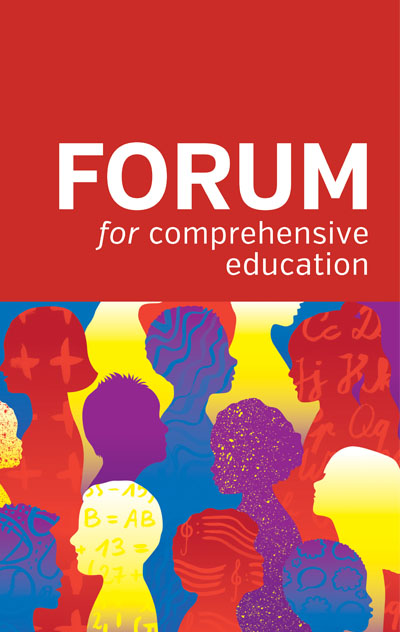
Homo Sapiens 1.0: human development and policy construction
FORUM - Print ISSN 1474-7685 - Online ISSN 2047-7171
Volume 59 Number 2 (2017)
Homo Sapiens 1.0: human development and policy construction
PAM JARVIS pages 153‑158
DOI: 10.15730/forum.2017.59.2.153
Abstract
Nearly a century of psychological research and recent advances in neuropsychology suggest that there is a 'learning to learn' stage in early childhood, during which children need to create the foundations of human cognition, which relies upon the ability to logically categorise incoming information. Mid-twentieth-century psychologists would refer to this process as 'schema building', while twenty-first-century cognitive scientists would refer to it as the development of 'embedded mental representation'. Whichever term we use, the implication for the early years teacher is the same: that children in the nursery stage of education, which is internationally recognised as the years between the third and seventh birthday, most effectively learn through self-chosen, play-based activities undertaken in the company of peers and facilitated by adults who engage in the process of 'sustained shared thinking' â€" that is, sensitively supporting the child to sequentially increase his/her understanding through 'real life' experience during this process. This article explains why the needs of young children have been increasingly poorly addressed in this respect within recent education policy in the United Kingdom, with reference to potential issues arising.
To cite this article
PAM JARVIS (2017) Homo Sapiens 1.0: human development and policy construction, FORUM, 59(2), 153-158 . https://doi.org/10.15730/forum.2017.59.2.153
